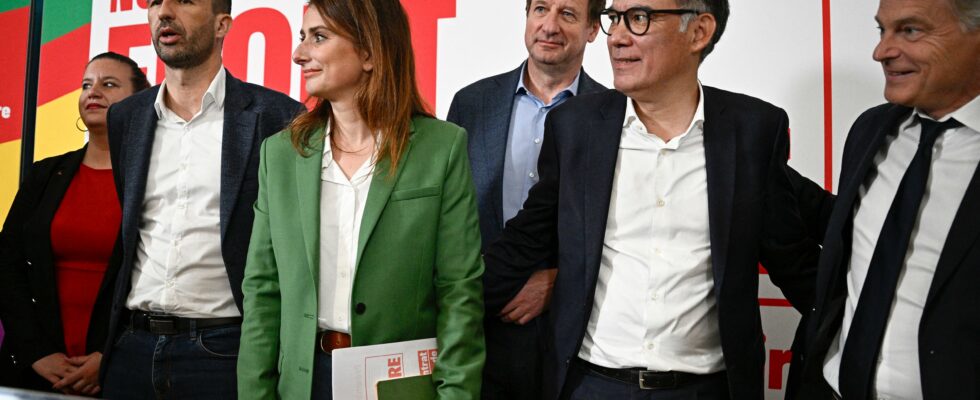What is written matters. What isn’t is just as telling. The components of the New Popular Front, at the end of intense negotiations for the early legislative elections, completed at the end of last week a common program and “break” with the policy of Emmanuel Macron. The climate emergency and the energy transition infuse many aspects written in black and white by rebellious negotiators, socialists and environmentalists. They want, in unison, a moratorium on major highway projects and on megabasinsthe vote on an energy-climate law, a plan charting the path to carbon neutrality in 2050, opposing the privatization of hydroelectric dams and transforming France into a “European leader in marine energies”.
The mention of renewable energies, which are the subject of consensus, barely hides the absence of concrete parameters on the future composition of the French energy mix. It contrasts above all with the silence of the elephant in the room: nuclear power.
“We do not agree, we are not going to act as if we were,” justified Manuel Bompard, the coordinator of La France insoumise. So with a view to unity and an express campaign, the angry questions, including the thorny question of the atom, were voluntarily postponed until later. “The timetable is certainly very limited, but it is not up to the challenges,” regrets Benoît Calatayud, director of energy transition at Capgemini Invent and expert associated with the Jean-Jaurès Foundation.
“Nuclear is one of the many political fault lines within this alliance, confirms Pierre Germain, associate director and founder of the consulting firm E-CUBE. This debate has been evacuated, and I can only regret it, because there is a need for education. By staying on the surface, we lose the deep vision of what the energy mix of the future should be.” The same avoidance strategy was used in 2022 for the program of Nupes (New Ecological and Social Popular Union), the ancestor of the New Popular Front. Noting their differences, the parties had agreed, in the event of victory in the legislative elections, to then decide the question in the National Assembly. Rebelote, therefore, in 2024.
“Ecologists of the past”
The recent – but already almost forgotten – European election campaign has, however, once again shed light on the fundamental differences between the parties. THE Socialist Party considers the atom as a “transitional energy” and considers that it is necessary to rely on existing installations to move towards 100% renewable. The communists (PCF) clearly display their pro-nuclear profile and are campaigning for the construction of at least six additional EPRs – the project already launched by Emmanuel Macron, who even spoke out in favor of eight more. A posture the antithesis of La France insoumise and the Ecologists, whose heads of European lists were described as “ecologists of the past” by that of the PCF during a televised debate. The two parties indeed want to do without the atom completely, even if this position is becoming more and more contested by a fringe of young activists, particularly among the Greens.
This opposition was just as visible in May 2023 during the vote on the nuclear recovery law. The communist deputies voted for; the rebels and environmentalists against. In the center, the socialists, who abstained. The only clear consensus in the program of the New Popular Front: a return to the painful merger of the Nuclear Safety Agency (ASN) and the Nuclear Safety Research Institute (IRSN).
In the event of victory on July 7, sensitive issues will have to be quickly resolved. “Climate policies are very costly, because they destabilize many habits, professional groups, even beyond the interests of the powerful. So to win, we must leave them aside. But to govern, this will not be possible”, analysis, onthe philosopher of ecology Pierre Charbonnier.
Before a dissolution which put many files on hold, ecological planning was already suffering from chronic delay. The new multiannual energy programming (PPE) is the most striking example. “We have lost a lot of time in recent years with the crisis of institutions, regrets Pierre Germain. It is dramatic for our energy future, but also social. There is no need for further procrastination.” Benoît Calatayud agrees: “There is a real need for planning, to decarbonize our society with the right energy offer – which is multiple. We must tell a new story of the transition.”
.
